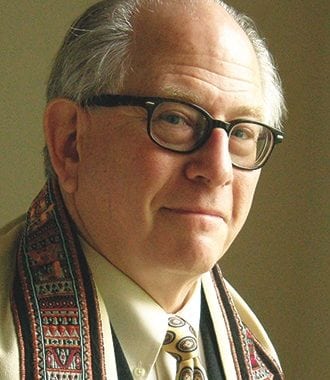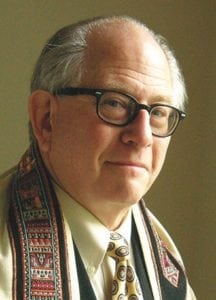By Rabbi Stanley Miles
I have always loved classic American musical theater. Richard Rodgers and Oscar Hammerstein II were exemplars of this genre for much of the 20th mid-century. Every Rodgers and Hammerstein musical began with a beautiful rousing overture to set the mood for the story to unfold. When I begin to consider the High Holydays every year, my first stop is not Rosh Hashanah. Judaism doesn’t begin with the change a new year brings. One must seriously work for the new year’s arrival with intense preparation. We must create an overture of actions. Judaism provides a path for us to take: Cheshbon Hanefesh, an accounting of the soul.
Cheshbon Hanefesh developed during the 19th century as a part of the Mussar movement in Judaism. Mussar was designed to lead us to ethical behavior and has become popular in recent years. I want to share my personal path for Cheshbon Hanefesh which has become an important part of my year as I strive to live my Judaism.
The Overture commences on Rosh Hodesh Elul, the first day of the 12th and final month of 5784. This year it is very late: Tuesday, September 3 at sundown. At that time, I will review my personal Jewish calendar for the first 11 months of 5784. I will revisit the events and my relationships during the past year considering my successes and, more importantly, my failures. I will think of the people I helped and those I hurt; those who helped or hurt me.
This is an emotionally challenging process. Why bother? If Elul is the Overture, the finale is Yom Kippur when we atone for our sins before G-D.
Cheshbon Hanefesh during Elul gives us time to both approach and be approached by those we hurt and who hurt us.
Now it’s time for the hard part: I will try to encounter those folks I remember hurting, in person, to apologize to them. Yes, this is a challenge, but only the first step. I also ask them what I can do to earn their forgiveness. Over the last 40 years, I’ve noticed 3 types of reactions:
Surprise: the folks I encountered had no memory of the action that emotionally weighed me down. Their reply — ‘I can’t remember what you did but if it makes you feel better, I forgive you.’ This group was the majority.
Gratitude: Yes, they remembered what I did and they began by thanking me for my honest candor. At times, they asked me to do something to merit forgiveness, which I gladly did.
Anger: Yes, they remembered the incident. As far as they were concerned our friendship or relationship had ended. I did what I could do to no avail.
After these encounters I begin my waiting process. Will those who hurt me approach? Sometimes, yes; more often, no.
Yet, after Cheshbon Hanefesh, I feel better, much better. I have done my best to conclude the year and commence the New Year with a clean slate.
I send my fervent wishes to you for thoughtful Elul 5784, and a 5785 of peace, understanding and freedom for the hostages in Gaza!
Rabbi Stanley Miles retired in 2016 after 39 years of service with Temple Shalom. He remains active teaching courses for adults, sharing his love of Judaism both inside and outside the classroom.




